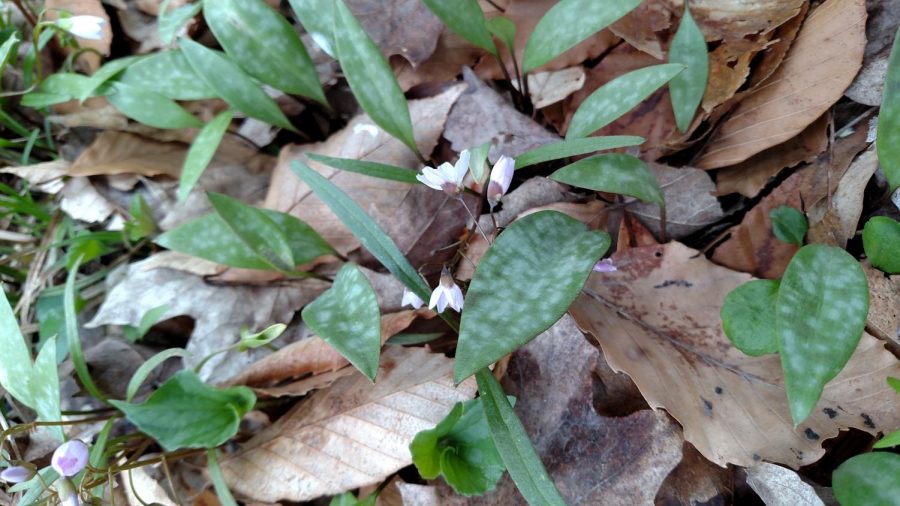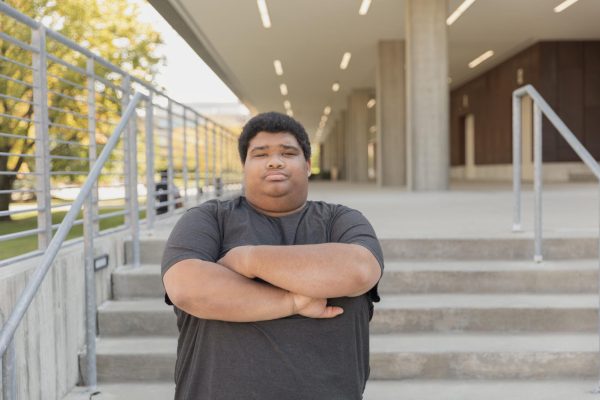Letter to the editor: Gidinawemaaganinaanig: Endazhigiyang (All Our Relations: The Place Where We All Grow)
Information on OU’s ongoing efforts to raise awareness of Native American cultures and contributions, as well as the ultimate goal of these efforts.
Oakland University’s efforts to remember and address that it sits on the ancestral lands of the Anishinaabe people began in 2019 with an Honors College assignment taken up by a Native American student, Tara Maudrie (Sault Ste. Marie Tribe of Chippewa Indians). This assignment was a Land Acknowledgement for Oakland University, and Maudrie agreed to allow it to be the first draft of what would become a formal draft adopted by the university. It was then brought before OU administration and the Senate Steering Committee and then moved forward for consideration by the full OU University Senate.
The Native American Land Acknowledgement was adopted with unanimous approval from the Oakland University Senate on Feb. 18, 2021, and with this support in hand, the Land Acknowledgement moved through university communication and was then presented to, and accepted by, the OU Board of Trustees on April 8, 2021. It was announced to the campus community on May 5, 2021.
At a celebration event for the Land Acknowledgement on April 1, 2022, President Ora Hirsch Pescovitz announced that the university had designated an acre of land (found here in OU’s digital maps https://map.concept3d.com/?id=566#!m/626750?ct/0) specifically for Native American educational, community, and ceremonial use. In consultation with Native partners the land was named Gidinawemaaganinaanig: Endazhigiyang (All Our Relations: The Place Where We All Grow). Jud Sojourn at the Center for Native American Studies, Northern Michigan University, translated the name into Anishinaabemowin. This land designation represented the first rematriation of university land in the U.S. and OU’s first step in ensuring that both intentional actions and meaning support the Land Acknowledgment and how it can enhance campus culture in the future. By making land on campus available for Native American traditions, practices, and teachings, OU’s actions mark a serious commitment to the Native American communities that share its heritage.
Oakland University’s intentional rematriation signifies both a returning of the land to its original stewards and to itself as well as an ongoing commitment to explore and further recognize this heritage, building an evolution of meaning into an ongoing framework of knowing and honoring the breadth of OU history. Rematriation above all else recognizes and respects the sovereignty not only of Tribal nations and their ancestral practices and cultures but also that of non-humans living on the land (what Native peoples think of as plant and animal “relatives.”) Rematriating this land to its Indigenous stewards is an unprecedented act in the context of North American higher education. Rematriation partially fulfills the promises of the Land Acknowledgment’s words.
As a historically colonial institution of higher education, Oakland University will continuously work to honor and fulfill the significance of its Native Land Acknowledgement. The intention is therefore to avoid the errors of other institutions’ empty gestures or acts of violence and genocide when used against Tribal Nations by colonial and U.S. institutions.
For the first time, Native and Indigenous community members, especially urban Indigenous communities, who are far away from reservation land or don’t “own” property, will have a place to go where they can engage in traditional land-practices. Indigenous students and faculty have a place to go for spiritual practices. They can teach with this land and OU students can practice land-relations and learn from and with this land. Native students can come to study at OU and know that they can grow their ancestral seeds and walk the nearby bio-preserve. They will know that OU is working to be in right-relation with the land and with Native peoples and that OU is learning how to celebrate and honor Indigenous knowledge.
The goal of OU’s Land Acknowledgement and land designation is to build an ongoing, meaningful relationship with its Native communities that, through listening, learning, and respectful acts and words, strengthens our commitments to each other’s well-being and aspirations.
How do we, as a society, address the past? But not just the past – the legacies of that past? The ongoing effects of colonization?
Not one of us is personally responsible for the violence of the past, but we live in the wake of that past and acknowledge the global scope of colonization’s destructive impact on Indigenous peoples and their cultures. What we face here at Oakland University, in particular, is the impact of erasure committed against the Native peoples of what is now the United States of America.
This erasure was sought by colonial and U.S. policies through land dispossession and genocide (as exemplified by the Dawes Act of 1887), cultural expressions found in literature, film, and media that perpetuate stereotypes, the violence of boarding schools and the generational trauma of cultural losses that impact ongoing generations. This erasure was a fantasy of the colonial imagination because in order to get land, Native peoples had to be removed – not just from the land but from our minds. This was certainly committed in the various removals of Native peoples from their ancestral lands. But, Native people are still here and living their lifeways, and we, as a society, can no longer continue to live the fantasy that erasure feeds or even accept erasure as a fact.
How do we build a different inclusive future? One that doesn’t rest on the assumptions and fantasies of erasure but that seeks to acknowledge and respect the lives and lifeways of Native peoples as well as the legacies of violence they carry with them into our classrooms and boardrooms and institutions.
How do we build a different cultural, political, and educational landscape that respects the sovereignty of Tribal Nations and supports, honors, and recognizes our Native communities in the ways that they articulate themselves. After all, we’re facing a global environmental and climate crisis, and it’s time we begin listening. Though they comprise less than 5% of the world’s population, indigenous people protect 80% of global biodiversity.
Oakland University’s Native American Heritage Site does just this. It addresses, fundamentally, the heart of the matter and that is access to land which offers the space to practice Native lifeways and perpetuate Indigenous knowledge and traditions. The Heritage Site is a site where Native peoples and communities can be strengthened because what is fundamental to that goal – land – has been provided here.
As we prepare to celebrate Native American Heritage Month here at Oakland, we’ll be welcoming our guests to, and hosting events out on, the land. Our goal is to gather there in a new way and begin to learn about the rich cultural heritages and traditions of Native and Indigenous people. We have so much to gain by unlearning practices of erasure and embracing new perspectives that build a different future where respect thrives in a community of shared dignity. With listening and learning, then, we can build that sustainable future.
Written by:
Megan Peiser ([email protected])
Andrea Knutson ([email protected])






